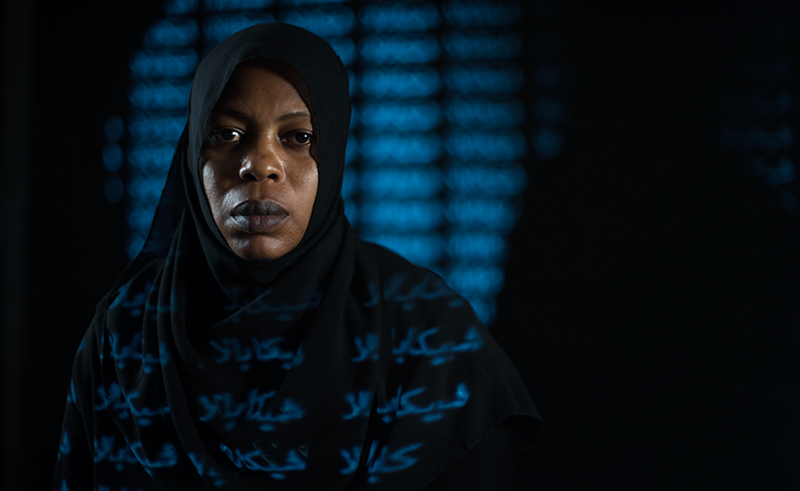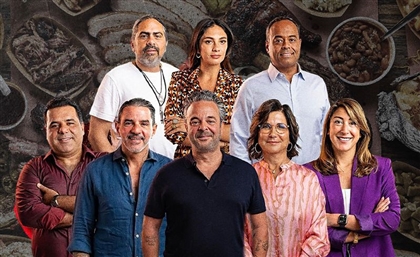“They Call Us Black and Filthy”: Sudanese Refugees in Egypt, Trapped Between Racism and Violence
Having escaped the “most successful genocide in a century”, Sudanese refugees seek shelter in Egypt, only to find themselves the agonised victims of a modern-day, silenced apartheid. Ahead of World Refugee Day, four refugee women in Cairo tell their stories.

Her almond eyes insinuate a serene, unspiteful smile. As if each of her yesterdays wasn’t shaped by fear. As if her entire family wasn’t crushed by violence, abuse, and abandonment. As if she wasn’t constantly fighting a battle to earn the right to live in a society that doesn’t consider her an equal. Mariam* landed – or rather, arrived, after a painstakingly long journey by land – in Egypt in 2015, after her village in Darfur was set on fire during clashes between the Fur tribe, one of several non-Arab tribes fighting the Sudanese government, and the Khartoum-allied tribes. The young student, who is now 17, settled in Cairo with her mother and her eight siblings. Although they are now only seven.
“My brother Salman looked exactly like me; people would always think we were twins – I love him so much,” she pauses, her innocent smile suddenly vanishing. “One day, he left for work and didn’t come back. He’d been suffering street harassment and abuse since we arrived. We never saw him again,” she recalls, a tear dropping down her cheek. Her brother’s struggle is familiar to Mariam, who is forced to endure the daily humiliation of street harassment, psychological abuse, and institutional neglect.
“We are treated like dogs,” she says. “On my way to university, on the microbus, no Egyptian will sit beside a Sudanese person. People in the streets shout: Ya sooda (hey black girl), ya shukalata (hey chocolate), ya samra (hey dark girl), and we just accept it, because we have no one to turn to; no one to rely on. They tell us things like 'there’s no point taking a shower because we are dirty anyway.' This is my colour, what should I do!? I can’t wash it, I can’t do anything. My little brothers are now psychologically affected, and ask me why our colour won’t go away every time they shower. They are young; they are in primary school and kindergarten; why should they grow up on these beliefs? Sometimes they refuse going to school in order avoid hearing these things,” she cries.
I’d rather we’d died there and hadn’t come to Egypt

“I’d rather we’d died there and hadn’t come to Egypt,” she painfully asserts. “Nobody is helping us find my brother, and I don’t even know how to console my mother. She already lost [her] first son to war,” she cries. Mariam is referring to her mother’s first son, Mohamed, who was forcibly recruited by the Sudanese army soon after he'd completed his university degree.
Her home country of Sudan has been drowning in conflict since its independence in 1956, especially in Darfur, where conflict has led to what Harvard fellow Eric Reeves calls “the most successful genocide in a century,” a genocide that included the mass rape, abduction and slaughter of civilians. And that escalated through the militarily campaign against the Jebel Marra massif in Central Darfur in 2016, which included the use of chemical weapons against civilians.
In fact, Sudan ranks third on the world's most neglected displacement crises, according to a study by the Norwegian Refugee Council, with over three million people displaced over 14 years. Many of them sought refuge in Egypt. Today, despite official UNHCR figures estimating them at about 28,000, a Brookings study cites a 2011 report from the Egyptian Initiative for Personal Rights indicating the figure could stand between two to five million refugees and migrants.

“Did you get your 9 children at the supermarket?”
“My husband used to work for the international NGO Oxfam. We were living in the north of Darfur, an area where there were several conflicts,” recalls Mariam’s mother, May*. “At the time, the organisation divided the community into three groups; one would walk North of Darfur, the second one would walk towards the West of Darfur, and the third one would go South. We set off to Nyala, and settled in an area called Dagrase but in 2005 the village was set on fire. My husband, his father, and two of his brothers died that day,” she recounts, her gaze set to the floor.
Having lost her first son - whom she hasn’t heard from, still today - May fled to Egypt led by her second eldest son, Mohamed. “He managed to escape the army’s recruiting. But on the 4th of May 2016, Salman went to work and never returned,” she says. “When I went to report his disappearance, I was told: ‘How do you live with your nine children? You got them from a super market? What do you feed them? Let him go, this way you have one less to feed'."
“I know some guy from the coffee shop kept calling him ‘chocolate’, but we don’t know what really happened. I don’t know what is their problem. Human are humans, no matter their colour; humans did not create themselves; God has created us, regardless of our religion or nationality we are all equal. So if you are insulting my colour, you are not insulting me, because I didn’t create myself,” she insists.
“I came to Egypt looking for my husband, but he’s gone”
On her way to work, at the supermarket, or while taking her son to school, Salma*, just like May, is forced to endure the double stigma of being a black refugee woman in a country where racial discrimination and colorism are paradoxically ingrained in the collective consciousness. “Egyptians don’t like to deal with Sudanese at all, not even to shake hands or say hello. They don’t even look at you, I don’t know what’s wrong. You find kids calling you “Shikabala” (after a famous football player), “black” and “Sudanese,” she recounts.
Her story is tarnished with the sad memory of a tragic marriage that, still today, is unresolved. She came to Egypt in 2015, looking for her husband, who had moved to Egypt seeking a safer future. The couple had been married since 2009, but Salma had only seen her husband twice. She actually doesn’t know much about him, but in their short time together, they had a son. Salma raised her son alone in Sudan and when he reached a school age, she realised he needed the presence of a fatherly figure. But as she had lost contact with him, she came to Egypt to find him. "I saw him once, but then he disappeared again."

Alone, abandoned, and scarred by the haunting memories of war, Salma finds herself a scapegoat of Egypt’s economic downturns, as people often blame immigrants and refugees for the lack of jobs and inflation. “I once went to the supermarket and the owner told me ‘you have made living expensive, why did you leave your country and came here?' At the same time, the women around him began telling me that I’ve increased the prices, the rent, and the dollar. What do I have to do with the dollar? Everyone around him remained silent,” she says.
Despite her eloquence, Salma often chooses to remain silent. “How can I respond, what can I tell them? Egyptian people would never accept me talking to them, let alone giving them a piece of advice. Even at the mosque, when I go to pray at the first row, they tell me to stay at the back because I am Sudanese,” she says.
“Are you even worth someone hitting on you?”
The phrase still resonates loud in Nuha’s* mind: “Are you even worth someone hitting on you?” a street harasser told her. “In my country, I am respected and honoured. I’m a woman and this is how God made me. Whether I’m black or dark, that’s not my choice. It is how I was born – the same way others are white, or black or green or yellow,” she ironises.
“Why does this happen? Because I’m a guest in this country. Because I’m alone. Because I’m a refugee. Most people don’t appreciate that I have a decent job. They probably judge me because I work and get home around 6 or 7 or even 9 at night every day. I can’t explain to anyone that I was an airline hostess. While when I was working at the airport, I wouldn’t sleep at home for 4 or 5 days, I would go to 27 different countries, I travelled to Turkey, Syria, Jordan, and many African countries. People knew my name and knew that I was an airline hostess. Here, at the end of the day, ‘you’re in my country and you’re here to work for me’. This is what they say.”
“But it’s not being called ‘black’ that hurts me so much,” she points out. “It’s the word refugee that hurts me the most. Everyone in Egypt knows that I’m a refugee and knows that there is an office for refugees in Egypt. But when they call you a ‘refugee’ it’s hurtful. Because it’s a difficult word, it’s a word derived from a desperate need; because if you don’t need it you won’t have to go seek it. It’s a harsh and hurtful word. I know that I need you, so don’t remind me that I do. It scars your pride.”
*In order to protect the interviewees' identity, some names have been changed.
This article is part of a campaign titled #DONTCALLMETHAT, created in partnership with #MO4Good.
Photo and video by @MO4Network’s #MO4Productions.
Photographer: Ahmed Najeeb.
Shot and edited by: Nabi Abdelnabi
Translation: Nour Hussein































